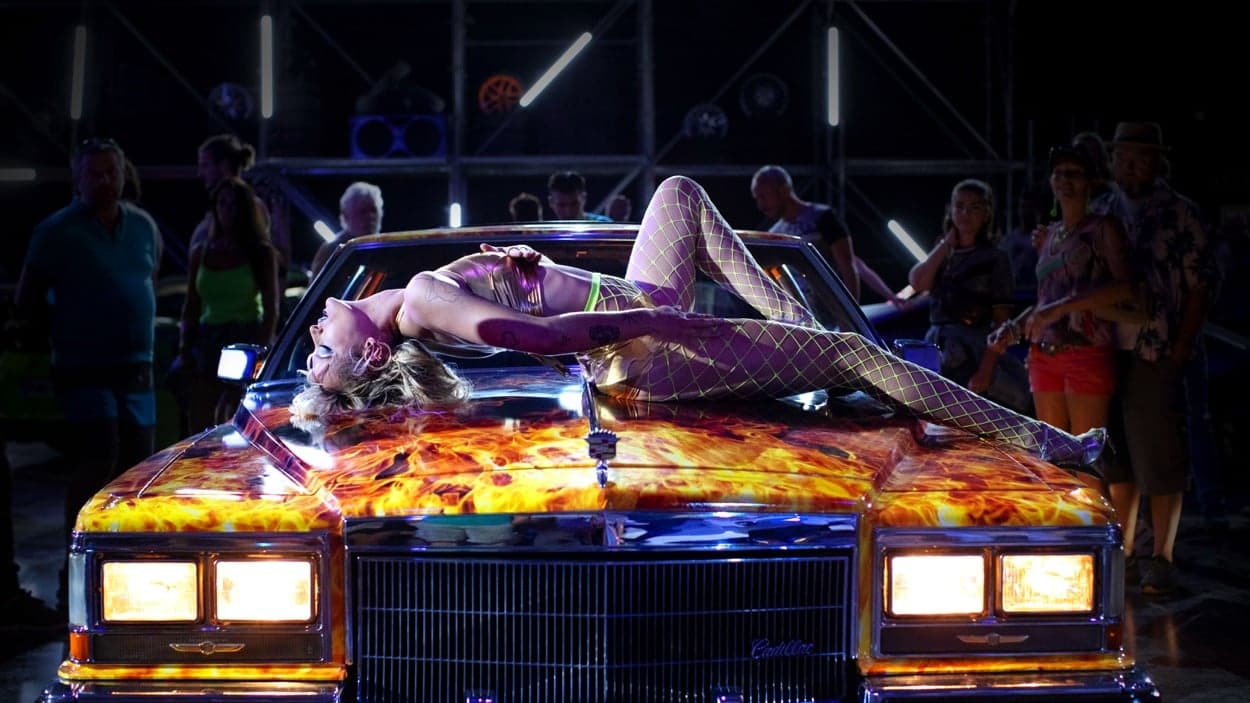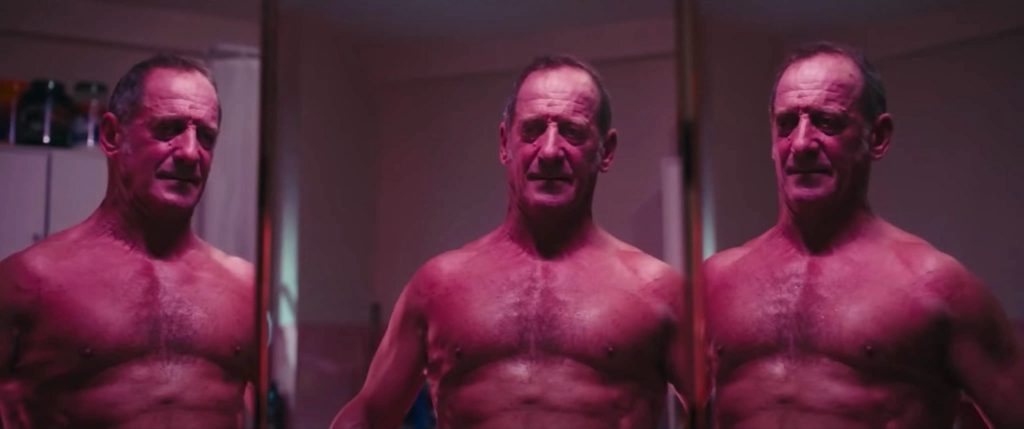How to approach Titane, Julia Ducournau’s follow-up to her bold debut Raw, without entering spoiler territory? It’s not so much a story as an exercise in shock reveals, of inappropriateness and transgression, delivered in the sort of cine-literate style that gets festival juries salivating. It won the Palme D’Or at Cannes.
What can be said is that it starts off soberly enough, with a man driving with his daughter in the back of the car. Alexia is humming loudly, to Dad’s irritation. She makes things worse by kicking the back of his seat. Then she unhooks her seatbelt, causing him to swivel round from the front and… disaster.
Alexia winds up in hospital, having a plate put in her head by a surgical team. Ducournau cuts to years later, and Alexia (now played by Agathe Rousselle) is now working as a dancer at one of those car shows full of salivating men with cameras. She gyrates provocatively, all performative femininity, while the men drool and drift from one car and babe to the next, snapping pictures and admiring bodywork, performative masculinity of a boys-and-toys sort.
Shortly afterwards the spikily unfriendly Alexia is in the showers getting her hair tangled in the nipple ring of Justine (Garance Marillier, the star of Raw), in the first of several meet-uncutes. And so we enter Spoilerland. In a dark, giallo-lit, body-horror-inflected downhill luge of excess Alexia is revealed as an avenging angel on a journey through another country, Transgressia – her clothes are off, she’s a lesbian, she has the hots for her dad, she poses as a man, then dresses as a woman while posing as a man, she’s pregnant and tries to terminate it by… (I won’t say how), pretends to a desperate father that she’s his missing son, then gets inappropriate with him. All the while murdering almost everyone she encounters. When Ducournau spots a taboo, she wants a crack at it.
It’s David Cronenberg meets Shinya Tsukamoto done with cock-eyed humour and performed with a certain magnificence by Agathe Rousselle, who gives the definitively intense all-in all-off all-out performance – those strong pre-Raphaelite features really help. Opposite her, in an equally banzai turn in many respects, is Vincent Lindon, as the grieving dad and fireman she ends up in a strange relationship with. Here playing a man deliberately named Vincent, Lindon has built his career on man’s man roles. The fact that the fictional Vincent is a man who injects himself daily (steroids or testosterone or human growth hormone) to keep his masculinity intact is another of Ducournau’s transgressive jokes. Beneath the macho exterior he’s a wobbling jelly of emotion and is so fragile that he’ll take succour from any quarter. Theirs is a strange love relationship, of sorts. Again, all highly inappropriate, because Alexia is pretending to be his long-missing son.
Ducournau and her Raw DP Ruben Impens paint this slide across the boundaries with splashes of giallo yellow and green and red and Jim Williams (I think) does fabulous things with a gregorian-tinged soundtrack always suggesting gothic monstrosity is about to occur, as indeed it does keep doing all the way through.
Pain hurts in this film – like when Alexia breaks her nose to make herself look more like the missing kid she’s about to pretend to be – or when she tries to get rid of the foetus growing like a homunculus inside her. And yet the film works better as homage than as a felt experience.
Perhaps, for all the grunge, Ducournau’s loopy sense of humour is working against it. Or maybe, with all the referencing of already existing styles, it’s not, ironically, being transgressive enough.
Titane – Watch it/buy it at Amazon
I am an Amazon affiliate
© Steve Morrissey 2021


